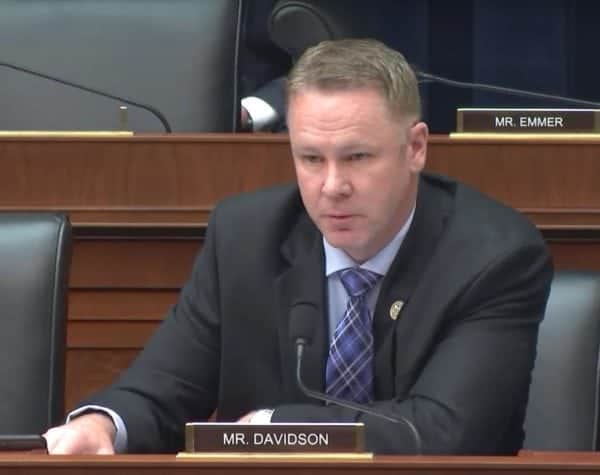Twenty-one American Members of Congress have signed a strongly-worded letter “urg(ing)” the Internal Revenue Service (IRS), “to issue needed guidance on the tax consequences and basic reporting requirements for taxpayers that use virtual currencies,” in the United States.
The letter is signed by Darren Soto and Warren Davidson, two Members of Congress who also introduced the Token Taxonomy Bill into Congress last year.
The Token Taxonomy Act is designed to:
“… to exclude digital tokens from the definition of a security, to direct the Securities andExchange Commission to enact certain regulatory changes regarding digital units secured through public key cryptography, to adjust taxation of virtual currencies held in individual retirement accounts, to create a tax exemption for exchanges of one virtual currency for another, to create a de minimis exemption from taxation for gains realized from the sale or exchange of virtual currency for other than cash, and for other purposes.”
The Token Taxonomy Act in its current iteration can be viewed here.
 In addition to Soto and Davidson, the letter pressing the IRS for clarity is also signed by Tom Emmer, Bill Foster, David Schweikert, Patrick McHenry, James P McGovern, French Hill, Terri Sewell, Steven F Lynch, Ted Budd, Eric Swalwell, Trey Hollingsworth, Ed Perlmutter, Greg Gianforte, Josh Gottheiner, Mark Meadows, Lance Gooden, Matt Gaetz, Ted S Yoho, and Bryan Steil.
In addition to Soto and Davidson, the letter pressing the IRS for clarity is also signed by Tom Emmer, Bill Foster, David Schweikert, Patrick McHenry, James P McGovern, French Hill, Terri Sewell, Steven F Lynch, Ted Budd, Eric Swalwell, Trey Hollingsworth, Ed Perlmutter, Greg Gianforte, Josh Gottheiner, Mark Meadows, Lance Gooden, Matt Gaetz, Ted S Yoho, and Bryan Steil.
The letter states that almost five years have passed since the IRS provided preliminary guidance on crypto taxation and that two years have passed since the Inspector General for Tax Administration found inadequacies in the 2014 guidance.
The politicians claim that current guidance suffers from, “substantial ambiguity on a number of important questions about the federal taxation of virtual currencies.”
Despite “many open questions,” the letter focus on requesting three most pertinent clarifications:
- “Acceptable methods for calculating the cost basis of virtual currencies. Which specific methods does the IRS consider to constitute “a reasonable manner that is consistently applied,” as required by Notice 2014-21?”
- “Acceptable methods of cost basis assignment and lot relief for virtual currencies. Do taxpayers need to use specific identification whenever they spend or exchange virtual currency, or are other methods, such as first-in-first-out or average cost basis, acceptable as well?”
- “The tax treatment of forks for taxpayers that use virtual currencies, such as the 2017 hard fork of the bitcoin blockchain.”
According to the CPA Journal:
“The IRS addressed the taxation of cryptocurrency transactions in Notice 2014-21, which provides that cryptocurrency is treated as property for federal tax purposes. Therefore, general tax principles that apply to property transactions must be applied to exchanges of cryptocurrencies as well. Notice 2014-21 holds that taxpayers must recognize gain or loss on the exchange of cryptocurrency for cash or for other property. Accordingly, gain or loss is recognized every time that cryptocurrency is sold or used to purchase goods or services. How the gain or loss is recognized depends largely on the type of transaction conducted and the length of time the position was held.”
The CPA provides a reasonable synopsis and explanation of current IRS taxation requirements for crypto traders and users here.


